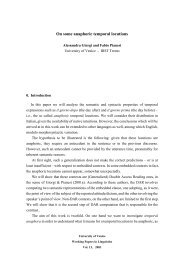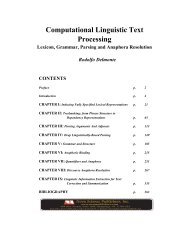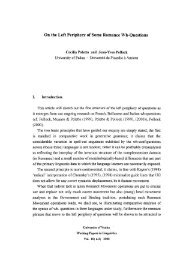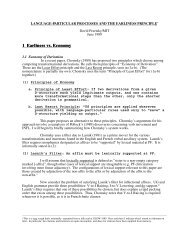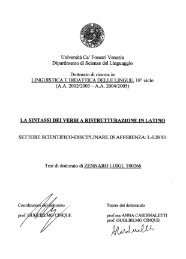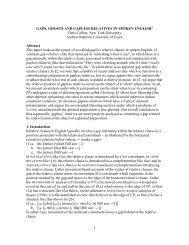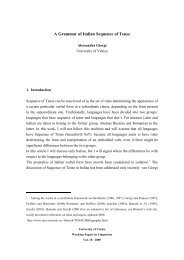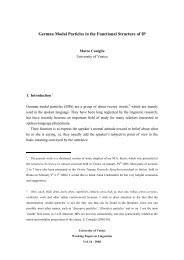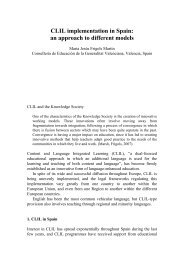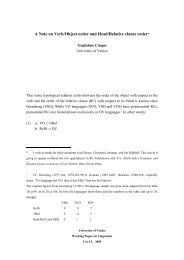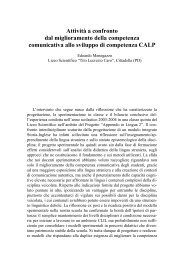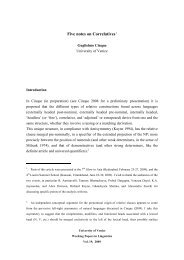Untitled - Lear
Untitled - Lear
Untitled - Lear
Create successful ePaper yourself
Turn your PDF publications into a flip-book with our unique Google optimized e-Paper software.
you it can ma buy<br />
‘You (P) can buy it.’<br />
Focus in IP: the Particle ma in Florentine<br />
Note that some speakers accept (28b) also if the direct object clitic is reduplicated<br />
on the infinitive:<br />
(28) b’. vu lo potete ma [comprarlo]focus<br />
This example shows that ma somehow blocks the deletion of the lower copy of<br />
the object clitic in a clitic climbing structure.<br />
Ma can also focus whole CPs if they are complements of verbs like volere ‘to<br />
want’ or dire ‘to say’:<br />
(29) a. Mario vole ma [che noi si vada via subito]focus<br />
Mario wants ma that we clit. go away immediately<br />
‘Mario wants that we leave immediately.’<br />
b. Giorgio ha detto ma [che un ne sa nulla]focus<br />
Giorgio has said ma that NEG of-it knows nothing<br />
‘Giorgio has said that he does not know anything about it.’<br />
I leave a complete analysis of these sentences for further research. For now, it is<br />
sufficient to say that ma can focus-mark very different types of elements, but in any<br />
case it must follow the inflected verb. This fact cannot receive an adequate explanation<br />
if we do not assume that ma is IP internal and that there is a FocP in the low IP area.<br />
4. Deriving the interpretation of the ma Focus<br />
In the preceding sections I have proposed that ma takes scope on an element<br />
moved to [Spec, Foc] in order to check a [+Focus] feature. The presence of ma gives<br />
to this focused element a contrastive interpretation, similar to that of the left periphery<br />
Focus in Italian and Florentine. This contrastive interpretation is always present in a<br />
ma Focus structure, as it can be inferred by the fact that a ma Focus cannot be used<br />
to answer a wh question:<br />
(30) a. A: a chi tu l’hai dato, i libro?<br />
to who you it have given the book<br />
‘Who have you given the book to?’<br />
B: #l’ho dato ma [a Mario]focus<br />
it have given ma to Mario<br />
‘I have given it to Mario.’<br />
b. A: icché tu voi comprare?<br />
what you want buy<br />
31



